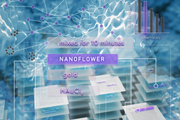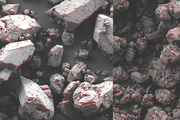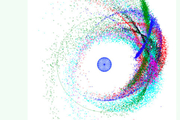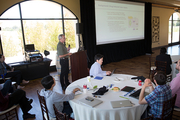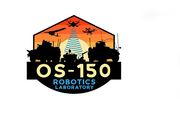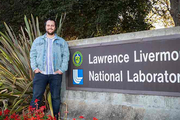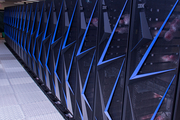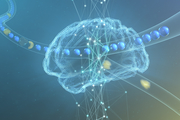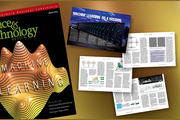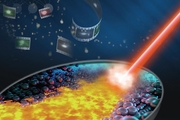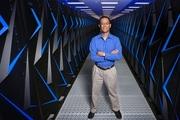Did you know we have a monthly newsletter? View past volumes and subscribe.
Lockdown doesn’t hinder annual Data Science Challenge
June 26, 2020 -
Due to the COVID-19 pandemic and shelter-in-place restrictions, this year’s Data Science Challenge with the University of California, Merced was an all-virtual offering. The two-week challenge involved 21 UC Merced students who worked from their homes through video conferencing and chat programs to develop machine learning models capable of differentiating potentially explosive materials from...
Lab team studies calibrated AI and deep learning models to more reliably diagnose and treat disease
May 29, 2020 -
A team led by LLNL computer scientist Jay Thiagarajan has developed a new approach for improving the reliability of artificial intelligence and deep learning-based models used for critical applications, such as health care. Thiagarajan recently applied the method to study chest X-ray images of patients diagnosed with COVID-19, arising due to the novel SARS-Cov-2 coronavirus. Read more at LLNL...
AI identifies change in microstructure in aging materials
May 26, 2020 -
LLNL scientists have taken a step forward in the design of future materials with improved performance by analyzing its microstructure using AI. The work recently appeared online in the journal Computational Materials Science. Read more at LLNL News.
Interpretable AI in healthcare (PODCAST)
May 17, 2020 -
LLNL's Jay Thiagarajan joins the Data Skeptic podcast to discuss his recent paper "Calibrating Healthcare AI: Towards Reliable and Interpretable Deep Predictive Models." The episode runs 35:50. Listen at Data Skeptic.
The incorporation of machine learning into scientific simulations at LLNL (VIDEO)
May 5, 2020 -
In this video from the Stanford HPC Conference, Katie Lewis presents "The Incorporation of Machine Learning into Scientific Simulations at Lawrence Livermore National Laboratory." Read more and watch the video at insideHPC.
Building knowledge and insights using machine learning of scientific articles
May 5, 2020 -
Nanomaterials are widely used at LLNL and in industry for many applications from catalysis to optics to additive manufacturing. The combination of nanomaterials’ shape, size, and composition can impart unique optical, electrical, mechanical, or catalytic properties needed for a specific application. However, synthesizing a specific nanomaterial and scaling up its production is often...
Local Women in Data Science conference showcases Lab research
April 3, 2020 -
For the third consecutive year, LLNL hosted a Women in Data Science (WiDS) regional event on March 2. The event drew dozens of attendees from LLNL, Sandia National Laboratories, local universities, and Bay Area commercial companies.
Livermore was one of over 200 regional events in 60 countries coordinated with the main WiDS conference at Stanford University. According to the WiDS website...
Machine learning accelerates high-performance materials development
Feb. 13, 2020 -
Lawrence Livermore National Laboratory (LLNL) and its partners rely on timely development and deployment of diverse materials to support a variety of national security missions. However, materials development and deployment can take many years from initial discovery of a new material to deployment at scale. Now, an interdisciplinary team of LLNL researchers from the Physical and Life Sciences...
Big data illuminates the physical sciences
Nov. 6, 2019 -
Livermore teams are applying innovative data analysis and interpretation techniques to advance fundamental science research. This article describes projects in astrophysics and materials science. Read more at Science & Technology Review.
Cindy Gonzales forges a new career in data science
Sept. 25, 2019 -
Through LLNL’s Data Science Immersion Program, Gonzales is now among the Lab’s newest data scientists. For two and a half years, she juggled a demanding workload—coordinating Computing’s Scholar Program, interning with data scientists, learning from mentors, supporting LLNL’s Data Science Institute, and attending college part time—while also having her first child. Read more at LLNL Computing...
Collaboration drives data science workshop
Sept. 12, 2019 -
Lawrence Livermore National Laboratory’s (LLNL’s) Data Science Institute (DSI) hosted its second annual workshop on July 23–24, 2019. Co-sponsored by the University of California (UC) system, the event drew more than 200 participants to Garré Winery in Livermore. A common theme ran throughout both days: Collaboration is always welcome.
Indeed, feedback from last year’s workshop inspired a...
New open-air facility will be testing ground for autonomous drones, vehicles and robots
July 25, 2019 -
LLNL’s new OS-150 Robotics Laboratory is an outdoor, 8,000 square-foot enclosure that will serve as a proving ground for the autonomous drones, vehicles and robots of the future. Informally known as the "drone pen," the 50-foot-tall rectangular enclosure, located directly across from one of the Lab’s main engineering buildings, is allowing operators to pilot their drones safely and...
Protecting image classification in artificial intelligence
July 8, 2019 -
To address vulnerability concerns in image classification, a new subfield of machine learning has emerged called adversarial machine learning, which focuses on the security of machine learning algorithms. Thomas Hogan, a doctoral student of mathematics at UC Davis, spent his summer investigating this new area of research during the National Science Foundation’s Mathematical Sciences Graduate...
How machine learning could change science
April 29, 2019 -
Artificial intelligence tools are revolutionizing scientific research and changing the needs of high-performance computing. LLNL has been exploiting the relationship between simulation and experiments to build predictive codes using machine learning and data analytics techniques. Read more at Data Center Dynamics.
Researchers explore machine learning to automate sorting of microcapsules in real-time
April 16, 2019 -
Micro-Encapsulated CO2 Sorbents (MECS) — tiny, reusable capsules full of a sodium carbonate solution that can absorb carbon dioxide from the air — are a promising technology for capturing carbon from the atmosphere. To create the caviar-like objects, scientists run three fluids through a series of microfluidic components to create drops that turn into capsules when exposed to ultraviolet...
Machine learning on a mission
April 11, 2019 -
Machine learning uses computers to learn from data and make predictions about the environment. As the world generates more data, interpretation becomes more difficult. A smart machine—one that adapts to new information on the fly—can speed up processing and analysis times and improve its accuracy in identification and prediction tasks. Although commercial and consumer applications of ML are...
LLNL explores machine learning to prevent defects in metal 3D-printed parts in real time
Sept. 13, 2018 -
LLNL researchers have developed machine learning algorithms capable of processing the data obtained during metal 3D printing in real time and detecting within milliseconds whether a 3D part will be of satisfactory quality. Read more at LLNL News.
Data science workshop embraces multidisciplinary community
Aug. 28, 2018 -
Since launching in early 2018, Lawrence Livermore National Laboratory’s (LLNL’s) Data Science Institute (DSI) has hit the ground running with a series of seminars, collaborative sessions, reading groups and other activities for the LLNL data science community. On August 7–8, 2018, the DSI hosted its inaugural offsite workshop, which was co-sponsored by the University of California (UC).
More...
Researchers developing deep learning system to advance nuclear nonproliferation analysis
Aug. 21, 2018 -
Artificial neural networks are all around us, deeply embedded in routine functions on the internet. They help online merchants make personalized shopping recommendations, enable social media sites to recognize faces in photos and assist email programs in filtering out spam. Neural networks also have the potential to play a critical role in national security, helping nonproliferation analysts...
New Data Science Institute supports explosive growth of data science
March 8, 2018 -
The Data Science Institute (DSI) is a new multidisciplinary entity supporting growth in this field both across Lawrence Livermore National Laboratory (LLNL) programs and among the external data science community. The DSI is designed to facilitate mission-driven data science through a cohesive vision, increased collaboration, and targeted outreach and recruiting. The DSI is led by Michael...






